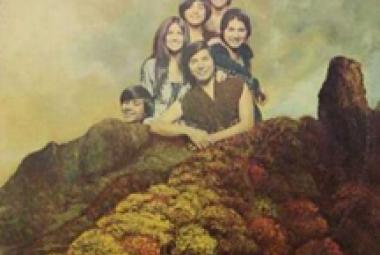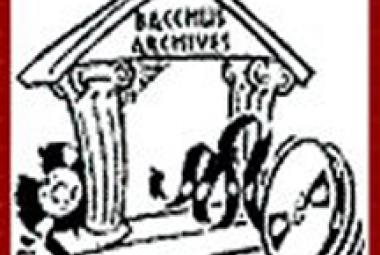Jimmy Reed – Jimmy Reed at Carnegie Hall (1961): Blues music is often faulted for being rudimentary and repetitive; as an example, in many blues songs the opening lyric is repeated as the second lyric, so there is some truth in that. In this regard, I have a favorite quote from Stephen King about the blues in the “Introduction” to one of his many short-story collections, Nightmares and Dreamscapes (1993): “There’s a big difference, it seems to me, between working in traditional forms and self-imitation. Take the blues, for instance. There are really only two classic guitar chord-progressions for the blues, and those two progressions are essentially the same. Now, answer me this – just because John Lee Hooker plays almost everything he ever wrote in the key of E or the key of A, does that mean he’s running on auto-pilot, doing the same thing over and over again? Plenty of John Lee Hooker fans (not to mention fans of Bo Diddley, Muddy Waters, Furry Lewis, and all the other greats) would say it doesn’t. It’s not the key you play it in, these blues aficionados would say; it’s the soul you sing it with.” Notwithstanding the above, as Cub Koda writes for Allmusic, the fact is that Jimmy Reed’s songs are among the simplest, most recognizable, and easiest to play and sing in all of music; concluding that Jimmy Reed is “perhaps the most influential bluesman of all”, due to his easily accessible style that is available to high school garage rock bands and professional musicians alike. The lyrics are also almost child-like in their simplicity and are delivered in a manner that is as laid back as it gets: “Bright lights, big city / Gone to my baby’s head”; “Big boss man / Can’t you hear me when I call? / Well, you ain’t so big / You’re just tall, that’s all”; “I could meet a hundred girls and have loads of fun / My huggin’ and my kissin’ belong to just one / Ain’t that loving you baby?”; “You’ve got me runnin’ / You’ve got me hidin’ / You’ve got me run, hide, hide, run / Anyway you wanna let it roll / Yeah, yeah, yeah / You’ve got me doin’ what you want me / A-baby why you wanna let go”; etc. Jimmy Reed at Carnegie Hall is one of the star albums in Charlie’s record collection, and I definitely didn’t get Jimmy Reed when I was in college. A lot of his friends used to make fun of the double album that he played regularly, even though I never did mind hearing it. After a while, I began to hear these Jimmy Reed songs out in the world, on radio and TV and on records and in concerts; and I realized that there is a lot more to this music than meets the, uh, ear. After all, Jimmy Reed songs have been covered by some of the biggest music stars ever: Elvis Presley, Charlie Rich, Lou Rawls, Hank Williams, Jr., and the Rolling Stones, among many others. Despite the title, Jimmy Reed at Carnegie Hall is not a concert album. According to the liner notes, one disk is devoted to “recreations of some of Jimmy’s most celebrated and biggest-selling recordings”; while “the second LP here is Jimmy’s celebratory recreation of his highly successful appearance at august Carnegie Hall this past May”. But there is some question as to whether the songlist matches what Jimmy Reed performed at Carnegie Hall, and most of the other songs appear to be the original recordings. In any case, Jimmy Reed at Carnegie Hall amounts to a double-album greatest-hits collection and includes most of Jimmy Reed’s best-known songs: “Bright Lights, Big City”, “Big Boss Man”, “Honest I Do”, “Hush Hush”, “Ain’t That Lovin’ You Baby”, “Going to New York”, “Take Out Some Insurance”, “You Don’t Have to Go”, and “Baby, Want You Want Me to Do”.





